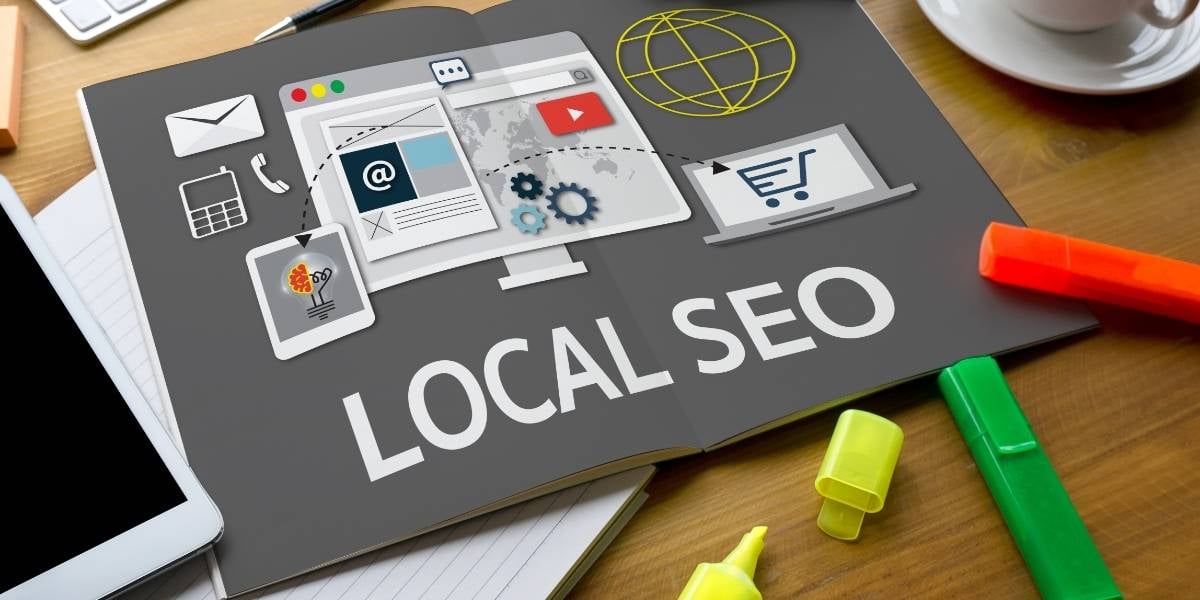At this point, it is the rare business that does not see the value of optimizing their online presence in order to rank more effectively in the search results pages. There are an estimated 5.6 billion Google searches each day - or an astonishing 63,000 per second.
We turn to the internet for everything from the mundane to the profound. Sixty-eight percent of online experiences begin with a search, and 80% of major purchases begin here, even if the purchase is completed in person.
So you know you need to pay attention to your search rankings - but what’s the best way to do that? When it comes down to local SEO vs. organic SEO, which practice will more effectively help you build not only your traffic but your business?

Local SEO vs. Organic SEO
There really isn’t a “versus” here. It’s not as if local is competing against organic. In fact, organic search can be local, and local search is also organic. Let’s clarify by taking a look at each in turn.
What is Organic SEO
It’s free, y'all! Organic search engine optimization is the practice of making your website as relevant, informative, helpful, and user-friendly as possible in order to rank higher in Google results. People very rarely venture onto the second page of the search results, and the top three sites get over 75% of all traffic for that particular query. This is why organic SEO is so important.
We mentioned it’s free: organic search involves people finding sites in the search engine results pages. Paid search, on the other hand, attracts traffic through the use of advertisements and/or sponsored listings. In other words, you’re paying to appear more prominently (ads and sponsored listings are always marked so searchers can easily identify them).
Organic SEO drives more relevant traffic to your website and can help generate increases in sales. Techniques include:
- Building and maintaining a strong backlink profile (backlinks are links from other sites that point back to yours).
- Integrating targeted keywords and keyword phrases
- Increasing website speed
- Minimizing load times
- Developing relevant, high-quality content
- Employing metadata to help your site “talk” to Google
And more. Google is secretive about its search algorithm, but it has over 200 ranking factors. A multifaceted organic SEO strategy is a must.
What is Local SEO?
If you’re asking what’s the difference between local SEO and organic SEO, it comes down to one word: intent. Searchers are clearly looking for businesses (stores, restaurants, hotels, lawyers… you name it) near them, or in a specific location.
Say you’re in South Beach, and you could really go for some breakfast. You might Google something along the lines of “restaurants that serve breakfast in South Beach (or near me).” And here you go:

Google local SEO can help you achieve a spot in the coveted “3 pack.” These three sites rank at the top and are given some special treatment to separate them from other results. You’ll notice that they appear on a clickable map and results include their address, hours, dine-in/curbside, star ratings, and sometimes, snippets of a customer review. Hungry searchers are most likely to click on one of these - and then go get some pancakes.
About 46% of all searches have local intent. There is much higher purchase intent, and people are highly likely to visit a business in person after conducting a local search. Typically, they have a specific need; when your site appears at or near the top of the results, they will choose you to fill it.
Many of the techniques involved in local SEO are the same as those employed with organic SEO, where there is no local intent. The difference is, though, that you optimize content and your website pages to reflect the location(s) in which you operate.
For example, if you own a pet store with multiple locations throughout South Florida, you might make an About page for each, highlighting the different locales and offerings. You will also make use of keywords - specifically your city/town. With larger cities, you might also get more granular by incorporating keywords that target your particular neighborhood (e.g. “Cuban restaurant in Little Havana”).
When it comes to local search, Google prioritizes:
- Relevance. Google wants to deliver the most targeted, helpful results. When your site can answer a question or fill a need a searcher has, it will rank more advantageously.
- Proximity. We’re looking for “near me”! Google takes the physical distance between the searcher’s current location and your business into consideration.
- Prominence. You may be closer than anyone else, but that doesn’t mean you’ll necessarily get a great ranking. You also need to be “prominent.” Your website should include indicators of popularity, such as positive reviews, customer testimonials, etc.
Local SEO vs. Organic SEO: The Winner?
Both! But if you have a business that operates within a specific locale, and you want to increase web traffic, foot traffic, and sales across online and in-person platforms, local SEO is a must. People are looking for the services, products, and solutions you offer; make sure they can find you.




